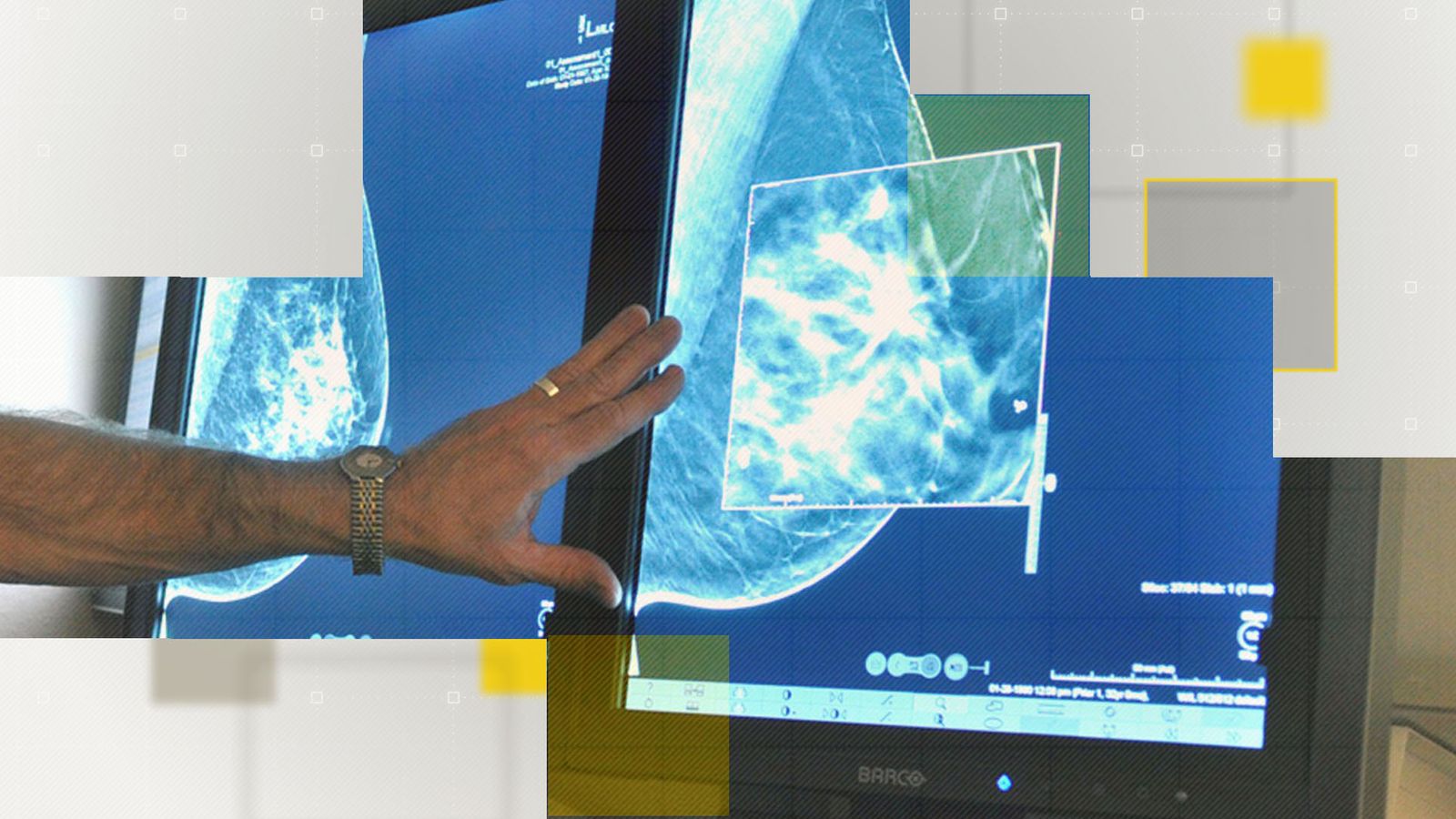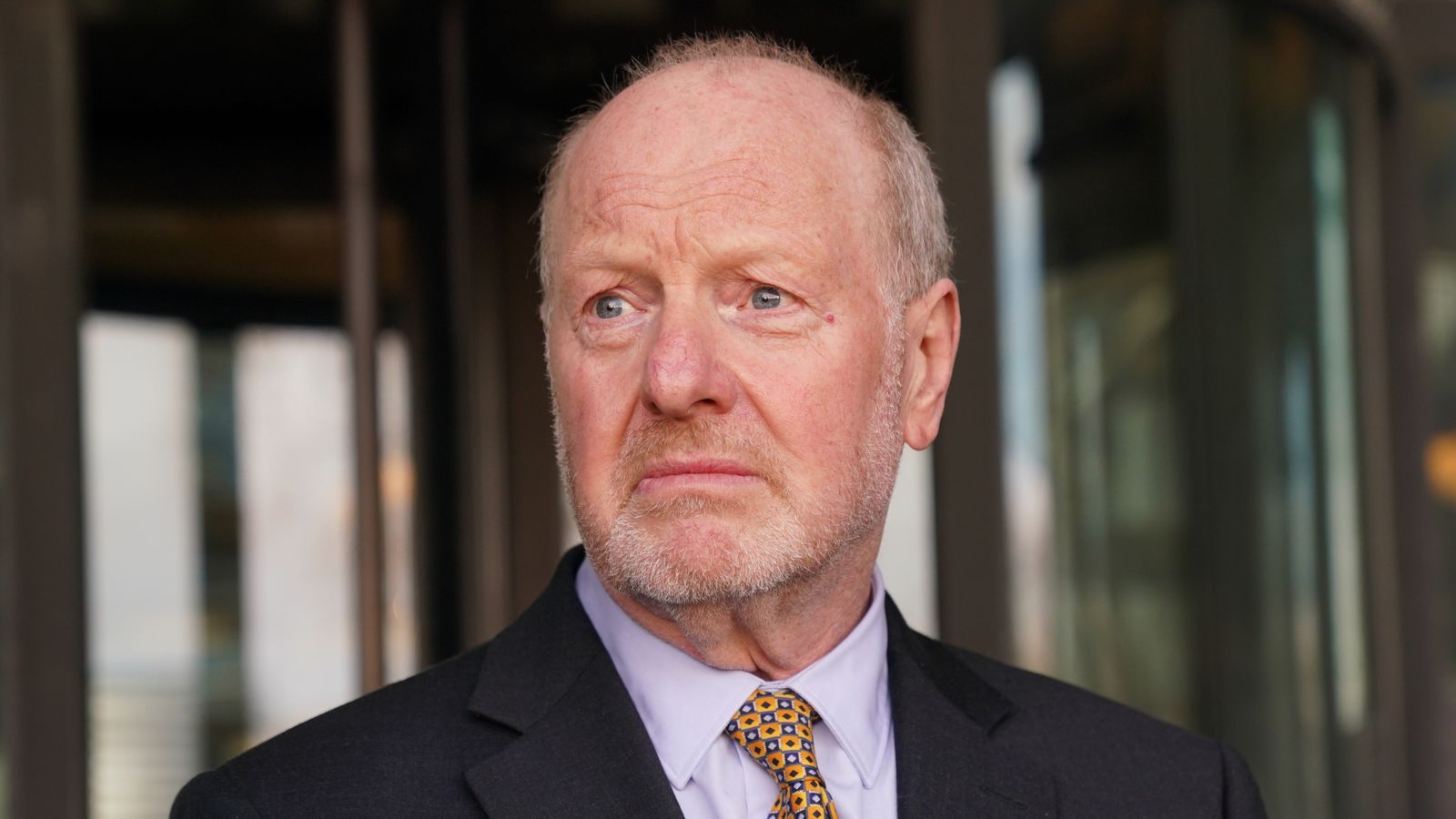A record-breaking 2.7 million people were referred for cancer checks in the past year, NHS England data reveals, as figures suggest the COVID pandemic saw numbers plummet in 2020.
The health service also said that the number of patients receiving cancer treatment has risen by around 2,000 since COVID struck.
Meanwhile, suspected cancer referrals remained at around 116% of pre-pandemic levels even during the peak of the Omicron wave, and rose overall from 2.4 million to 2,657,316.
The data from NHS England and NHS Improvement also revealed that around 315,000 patients started treatment compared with 313,000 before the pandemic.
Some 30,000 people have not yet started treatment due to the COVID crisis, according to Dame Cally Palmer, national cancer director for NHS England, but the latest figures suggested progress.
She said: “We are going further and faster than ever before in our ambitions to diagnose more cancers at an earlier stage so that we can save more lives.
“We have seen record numbers of people coming forward for checks in the last year, but we know there are still at least 30,000 who haven’t started treatment due to the pandemic, so it’s vital that we keep these referral rates high.”
Womb cancer: Excess weight almost doubles a woman’s risk of illness, new study finds
More than third of cancer patients in England, Wales and Scotland diagnosed in A&E, study shows
Louis van Gaal: Former Manchester United coach reveals he has prostate cancer
The NHS said it has expanded its services’ diagnostic capabilities across the country in a number of ways – including facilities such as one-stop shops for tests, mobile clinics and cancer symptom hotlines to ensure people are diagnosed and treated as early as possible.
Professor Peter Johnson, NHS England national clinical director for cancer, said: “We know the pandemic meant that at first we saw fewer patients, but in the last year GPs have been referring people for investigation in record numbers and have been working hard to make sure people with worrying symptoms can be seen.
“The NHS has continued to prioritise cancer care throughout the pandemic,” he said.
Please use Chrome browser for a more accessible video player
MPs previously warned that COVID-related disruption to the NHS would mean more people would not be diagnosed with cancer until it had reached a later stage – when it is harder to treat.
The Health and Social Care Committee said in a report earlier this month three million fewer people in the UK were invited for cancer screening between March and September 2020.
And fewer than 326,000 people in England received an urgent referral for suspected cancer between March 2020 and March 2021.
The committee added that there were more cancellations of vital cancer treatments during the Omicron wave, which indicated that “the NHS is still not able to access sufficient COVID-free treatment capacity to safeguard treatments and address the backlog”, the MPs said.
While welcoming the recent increase in referrals, charities have warned of the “devastating” impact of the pandemic on cancer care, and have urged the government to tackle the “chronic” problem of NHS understaffing in its 10-year cancer plan.
Minesh Patel, head of policy at Macmillan Cancer Support, said: “It is reassuring to see record numbers of people coming forward with cancer symptoms for these life-saving checks.
“However, people living with cancer are often missing out on crucial care as a result of chronic NHS understaffing.
“To avoid putting further pressure on hardworking doctors and nurses, it’s vital the government includes steps in the upcoming 10-Year Cancer Plan to grow the number of cancer professionals so that people living with cancer receive the quality and timely care they desperately need.”
Ian Walker, executive director of policy, information and communications at Cancer Research UK, reiterated that it is “vital” that the efforts of NHS staff are “bolstered in the government’s forthcoming 10-year Cancer Plan”.
Health Secretary Sajid Javid said: “The pandemic put unprecedented pressure on the NHS and it is positive to see more people coming forward for treatment and record numbers of people receiving life-saving cancer checks.
“Our upcoming 10-year cancer plan that will lead Europe in cancer care, along with our record investment to cut waiting times and the introduction of the health and social care levy, will help us continue our mission to tackle the COVID backlogs.”








